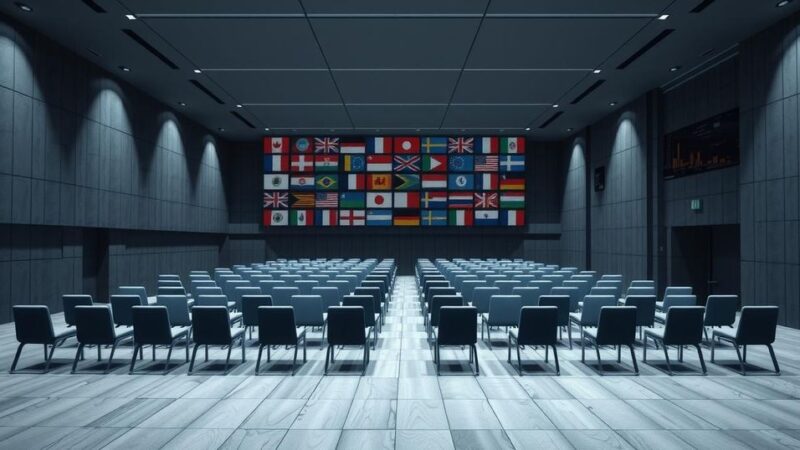Donald Trump’s expected return to the presidency highlights potential changes in U.S. foreign policy toward the Middle East amid rising tensions. Veteran diplomat Robert Ford provides insights into Trump’s capabilities to influence regional conflicts, particularly in regards to Israel and Palestine, as well as military relations with Lebanon and Syria. Historical Republican resistance to a two-state solution complicates prospects for peace, while Trump’s foreign aid stance suggests long-term changes. Internal divisions concerning Iran and Ukraine signal possible cautious approaches in military engagement.
The anticipated return of Donald Trump to the White House following his triumph in the November 5 election signals a potential realignment of United States foreign policy, particularly in the Middle East, amid escalating tensions. Veteran diplomat Robert Ford shared insights on Trump’s ability to influence ongoing regional conflicts, emphasizing the intricate dynamics at play and anticipated actions the incoming administration may take. Historical reluctance within the Republican Party to endorse a two-state solution for Israel and Palestine is expected to persist, complicating U.S.-led peace efforts. Ford noted the significance of Gulf state leaders in shaping Trump’s approach towards Israel, specifically regarding Palestinian statehood, which remains a priority for regional actors. Although Trump may lean towards reducing foreign aid, his long-standing alliances and support for Israel may prevent drastic shifts in military aid. Concurrently, conflicts in Lebanon and Syria reflect broader trends in U.S. military engagement, underscoring a complicated geopolitics that the new administration must navigate. Ford highlighted a divergence within Trump’s advisory team regarding issues such as Iran and Ukraine, suggesting a cautious approach to military interventions and international alliances. Overall, the unfolding political landscape necessitates critical examination of the U.S. role in the Middle East, particularly as regional stability hangs in the balance under Trump’s second term.
As Donald Trump prepares for his second term in office, the geopolitical landscape in the Middle East remains fraught with conflict and complexity. Ongoing tensions, particularly those stemming from the Israel-Palestine conflict and the war in Lebanon, require nuanced policy approaches. Historical alignment of the Republican Party with Israel’s interests complicates prospects for initiatives such as a two-state solution. Trump’s previous administration’s policies set precedents that continue to influence American diplomatic strategies. Now, as new political dynamics emerge, regional actors and U.S. allies anticipate how the incoming administration will address these longstanding issues.
In conclusion, the return of Donald Trump to the White House is poised to redefine U.S. foreign policy in the Middle East amid ongoing turmoil. With significant challenges such as the Israel-Palestine conflict and other regional disputes, the potential for effective U.S. engagement rests heavily on the administration’s willingness to prioritize relations with Gulf nations and reconsider existing alliances. The division within Trump’s advisory circles may further influence the administration’s overall diplomatic strategies and military involvements moving forward.
Original Source: www.arabnews.com






